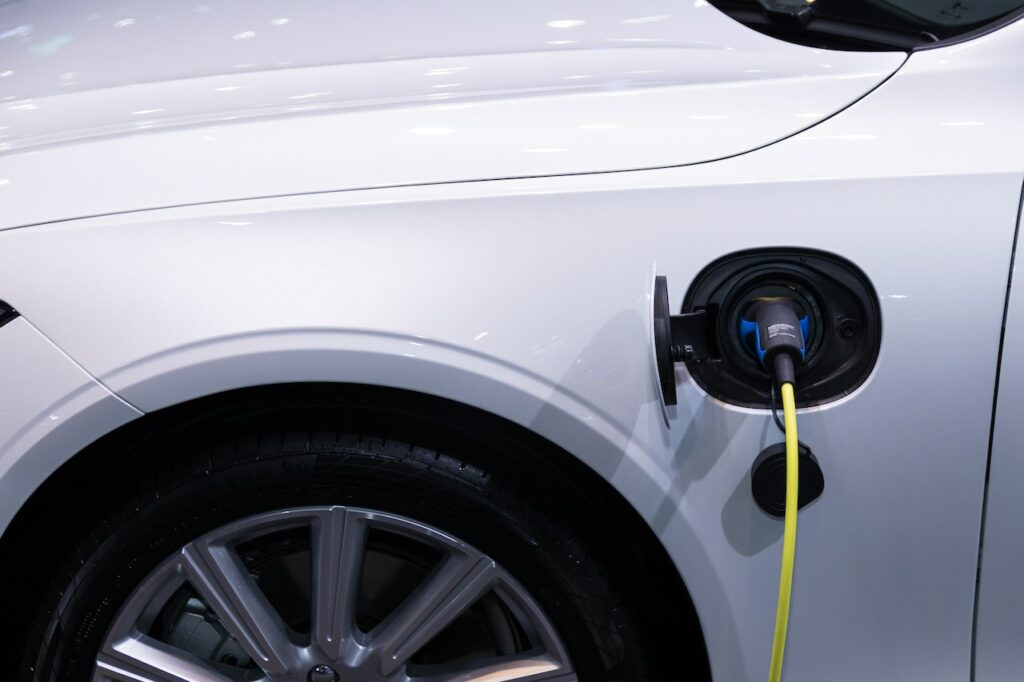Quick search
CTRL+K
Quick search
CTRL+K


Since 2010, the Global Law Experts annual awards have been celebrating excellence, innovation and performance across the legal communities from around the world.
posted 11 months ago
By PRASENJIT CHAKRAVARTI, Partner, and NITISH GOEL, Partner, at Khaitan & Co
The global automotive industry is undergoing a remarkable transformation with a shift towards electric vehicles (“EVs”), and India is at the forefront of this change.
This shift has created an unprecedented opportunity for growth, particularly in emerging markets like India. As the most populous country in the world, India presents a vast market for EVs, driven by a burgeoning middle class, increasing environmental concerns, and a commitment to reducing carbon emissions.
Naturally, this creates exciting opportunities for mergers and acquisitions (“M&A”), potentially reshaping the automotive industry in India.
The Indian EV Landscape: A Market Ripe for Growth
India is presently witnessing a significant transformation in its transportation sector. According to an independent study[1], the EV market in India will be a US$206 billion opportunity by 2030. The Indian government is also leaving no stone unturned to tap into the potential of the EV industry.
There are central governmental initiatives like the National Electric Mobility Mission Plan (NEMMP) and Faster Adoption and Manufacturing of Hybrid and Electric Vehicles (FAME) scheme, in addition to various production-linked incentive schemes to attract manufacturing of EVs and its components in India, which have provided an impetus to growth of EVs in India by way of subsidy and encouraging a “Made in India” label.
Many state governments have also launched their EV policies, offering additional benefits to consumers and manufacturers for faster EV adoption.
Also, despite the prevalent limitations, India is rapidly expanding its EV charging network. The Indian government has launched projects for installation of charging stations every 25 kilometers on highways and urban areas. This gradual development of EV infrastructure is also fueling optimism in the market.
The battery technology is constantly evolving to inter alia address range anxiety, and furthermore, technologies that enable battery swapping are addressing the charging time challenge by optimizing charge time. These developments are fast-tracking the adoption of EVs.
Nevertheless, compared to other countries, the Indian EV market is still in its nascent stages. EVs account for fewer than 5% of the total vehicle sales in India. However, the market is primed for explosive growth, with forecasts suggesting a compound annual growth rate (also known as CAGR) of 49% in the 2022–2030 period.[2] This makes the EV industry a great prospect for M&A activity.
Recent M&A Trends in the Indian EV Market
The M&A landscape in India’s EV sector has been dynamic, reflecting the industry’s vibrancy. Over the past couple of years, the Indian EV sector has seen an uptick in M&A activity. The Indian EV industry has attracted significant investment and is becoming steadily more attractive to strategic players, private equity, and venture capital investors.
Some of the most notable M&A deals in the EV space in India include:
Ola and Etergo
In May 2020, Ola Electric, the EV branch of the Indian ride-hailing giant, acquired Etergo, an Amsterdam-based electric scooter startup. This acquisition was aimed at bolstering Ola’s own manufacturing plans for electric two-wheelers.
Hero MotoCorp and Ather Energy
In October 2016, Hero MotoCorp, India’s largest two-wheeler manufacturer, acquired an up to 34.58% stake in Ather Energy, an Indian electric scooter manufacturer. This strategic investment helped Ather Energy in product development and market expansion.
Mahindra & Mahindra and REVA
One of the earliest significant M&A moves in the Indian EV space occurred in 2010, when automotive giant Mahindra & Mahindra acquired a majority stake in Reva Electric Car Company, which was then rebranded as Mahindra Electric.
Greaves Cotton and Ampere Vehicles
In 2018, engineering company Greaves Cotton bought a majority stake in EV manufacturer Ampere Vehicles. The acquisition was aimed at diversifying Greaves Cotton’s product portfolio and gaining a foothold in the electric mobility sector.
Tata Motors and Miljo
In 2019, Tata Motors European Technical Centre acquired a 50% stake in Miljo Grenland/Innovasjon, a Norwegian company, to form a joint venture that would develop innovative solutions for electric vehicles.
Minda Industries and Cellestial E-Mobility
In 2020, auto component maker Minda Industries acquired a 27% stake in the EV startup Cellestial E-Mobility. The acquisition gave Minda access to key technologies in the EV space.
Ridecell and IntelliAgnos
In 2021, Ridecell, Inc., a platform powering digital transformations and IoT automation for fleet-driven businesses, acquired the assets and intellectual property of Auro Robotics and IntelliAgnos, a predictive analytics company, to bring autonomous and EV technology to fleet-driven businesses in India.
Lohia Auto and Bird Electric
In 2017, Lohia Auto Industries entered into a strategic agreement with Bird Electric, a wholly owned subsidiary of Bird Group, to launch electric cars in India.
Varroc Group and Delta-Q Technologies Corp
In 2021, Varroc Group, a global auto component manufacturer, announced a cooperation agreement with Delta-Q Technologies Corp., a leader in battery-charging solutions for electric drive vehicles and industrial machines, marking its entrance into the EV component space.
M&A Potential in the Indian EV Market
The Indian EV market continues to offer numerous opportunities for M&As, driven by increasing competition, evolving regulations, and the need for technological advancements.
M&A provides a fast and effective route for companies looking to enter or expand in the Indian EV market, consolidate their positions, gain market share, and leverage synergies to accelerate growth. The convergence of these factors makes the Indian EV market a fertile ground for M&A activities.
Corporates, private equity funds, and venture capitalists are keenly watching this space for potential investment and acquisition opportunities. With favorable government policies, improving infrastructure, and rapid innovation in place, the Indian EV market is set for robust growth. These conditions are expected to generate ample M&A opportunities.
With increasing investments and a keen interest from both domestic and foreign investors, M&A activity in this sector is likely to flourish, presenting an electrifying opportunity for stakeholders involved.
Some of the possible M&A opportunities include:
1. Existing Automotive Manufacturers: Given the gradual shift from internal combustion engine vehicles to EVs for a variety of factors, including global efforts to combat climate change and reduce dependence on fossil fuels, existing auto manufacturers may look to form strategic alliances or make acquisitions to accelerate their EV strategy.
2. New Entrants: The Indian EV market has seen new entries by several domestic and international automakers. Companies like Tata Motors, Mahindra & Mahindra, and Hero Electric are leading the way with multiple investments which has led to the creation of a diverse range of electric vehicles across different segments. Global players such as Tesla, Hyundai, and Nissan are also in the process of setting up a strong presence in the Indian EV market.
3. Technological Advancements: Companies engaged in research & development (R&D) leading to advancements in technology, particularly in battery and charging solutions or creating high-capacity batteries, are attractive acquisition targets for automobile manufacturers and energy companies. A robust charging infrastructure is crucial for widespread EV adoption. Companies that are building extensive charging networks, or those pioneering innovative charging solutions, such as wireless or ultra-fast charging, may draw a significant M&A interest.
4. Strategic Alliances: Technology transfers by international players and formations of strategic alliances with domestic counterparts can create formidable relationships that can augment a company’s manufacturing capabilities and distribution networks. This can be critical for the growth and development of the EV ecosystem in India.
5. Integration Between Different Market Players: Battery technology and charging infrastructure are critical factors for the success of EVs in India. Players engaged in both sectors are primed for M&A activity to create collaboration between battery manufacturers, and charging infrastructure providers, which can lead to faster technological advancements and create seamless charging solutions.
6. Battery Technology and Energy Storage: Batteries constitute a significant part of the cost and efficiency of EVs. Companies focusing on innovative battery technologies or developing advanced, cost-effective battery technologies can be key targets for M&A. Energy storage solutions also offer attractive M&A opportunities in light of an increased demand in electricity usage resulting from the growing EV charging load that may lead to overburdening electricity grids.
7. Software and Services: The EV sector needs robust software technology for battery management, charging station management, etc. Tech companies engaged in these areas are also likely to witness an increased M&A activity.
Future Outlook
The Indian EV market is subject to evolving regulations, including emission norms, import duties, and incentives.
Regulatory uncertainties can impact the decision-making process of potential investors and pose challenges for M&A activities.
Clear and consistent policies are essential to provide a stable environment for M&A in the Indian EV market.
However, the path to widespread EV adoption in India is not without its challenges. Concerns around charging infrastructure, vehicle range, and high upfront costs still persist.
Nonetheless, sustained policy support and continuous innovation, coupled with strategic M&A, could pave the way for a greener, electrified India.
In conclusion, the potential of the Indian EV market is vast, and the M&A prospects equally promising. As the nation gears towards a sustainable future, the transformation of its automotive sector offers exciting opportunities for investors, manufacturers, and consumers alike.
[1] CEEW Centre for Energy Finance (CEEW-CEF) report available at https://www.ceew.in/cef/publications/ financing-india-transition-to-electric-vehicles
[2] Report by India Energy Storage Alliance (IESA) available at https://indiaesa.info/media/downloadfiles/EV_Report_Brochure._234429529.pdf
Author


There are no results matching your search.
Resetposted 1 hour ago
posted 13 hours ago
posted 13 hours ago
posted 3 days ago
posted 4 days ago
posted 4 days ago
posted 4 days ago
posted 4 days ago
posted 4 days ago
posted 7 days ago
There are no results matching your search.
ResetFind the right Legal Expert for your business
Sign up for the latest legal briefings and news within Global Law Experts’ community, as well as a whole host of features, editorial and conference updates direct to your email inbox.
Naturally you can unsubscribe at any time.
Global Law Experts is dedicated to providing exceptional legal services to clients around the world. With a vast network of highly skilled and experienced lawyers, we are committed to delivering innovative and tailored solutions to meet the diverse needs of our clients in various jurisdictions.